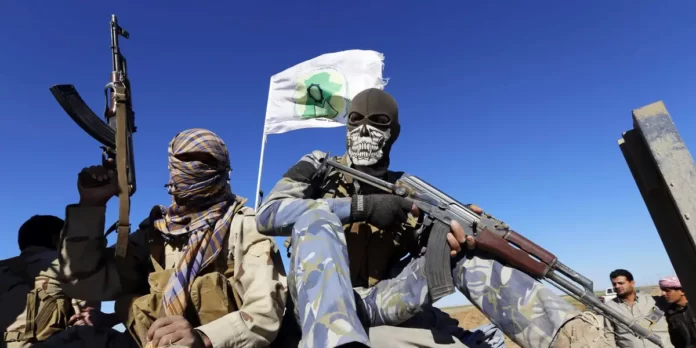The Iraqi government is facing increasing pressure to terminate the mission led by the United States coalition as a result of repeated airstrikes in the country. The strikes, often targeting Iran-aligned militias, have sparked outrage among Iraqi officials and citizens alike, leading to calls for an end to the coalition’s presence in the region.
The escalating tensions stem from a series of recent airstrikes conducted by the United States in various parts of Iraq. These strikes have reportedly resulted in civilian casualties and infrastructure damage, further exacerbating the already fragile situation in the country.
Iraqi Prime Minister Mustafa al-Kadhimi has been vocal in his condemnation of the airstrikes, describing them as a violation of Iraq’s sovereignty. In a recent statement, al-Kadhimi emphasized the need for Iraq to regain control over its airspace and security operations, signaling a growing rift between the Iraqi government and the United States-led coalition.
The repeated airstrikes have also reignited longstanding calls within Iraq for the withdrawal of foreign forces from the country. Many Iraqis view the presence of foreign troops, particularly those from the United States, as a source of instability and a hindrance to national sovereignty.
Iraq On Taking Actions
The situation has prompted Iraqi officials to consider taking decisive action to end the coalition’s mission in the country. While no formal announcement has been made yet, there is growing momentum within the Iraqi government to address the issue and assert greater control over its security affairs.
The United States-led coalition has defended its actions, stating that the airstrikes are conducted in accordance with international law and are aimed at targeting militant groups that pose a threat to regional stability. However, critics argue that the airstrikes have only served to exacerbate tensions and fuel anti-American sentiment in Iraq.
The escalating conflict between the Iraqi government and the United States-led coalition underscores the complexities of the security situation in the region. As tensions continue to rise, there is a growing sense of urgency for diplomatic efforts to de-escalate the situation and address the underlying grievances fueling the conflict.
The recent airstrikes have not only strained relations between the Iraqi government and the United States-led coalition but have also raised concerns about the potential for further escalation in the region. The ongoing violence threatens to undermine efforts to stabilize Iraq and could have broader implications for regional security.
Amidst the growing tensions, there is also increasing scrutiny of the role of foreign actors in Iraq’s internal affairs. Many Iraqis have long expressed frustration with the presence of foreign forces in their country, viewing it as a violation of their sovereignty and a source of instability. Calls for the withdrawal of foreign troops have only intensified in the wake of the recent airstrikes.
The situation has also drawn attention to the broader geopolitical dynamics at play in the Middle East. Iraq’s strategic location and its complex web of alliances make it a focal point for regional rivalries, with various actors vying for influence and control. The escalation of violence in Iraq risks further exacerbating these tensions and could have far-reaching consequences for the region as a whole.
Against this backdrop, diplomatic efforts to de-escalate the situation and find a peaceful resolution are urgently needed. International actors, including the United Nations and regional powers, have a crucial role to play in facilitating dialogue and promoting stability in Iraq.
Ultimately, the fate of the United States-led coalition’s mission in Iraq hangs in the balance as tensions continue to escalate. The coming days and weeks will be critical in determining whether diplomatic efforts can succeed in easing tensions and preventing further violence. However, the road to peace in Iraq remains fraught with challenges, and finding a lasting solution to the country’s security woes will require concerted efforts from all parties involved.

